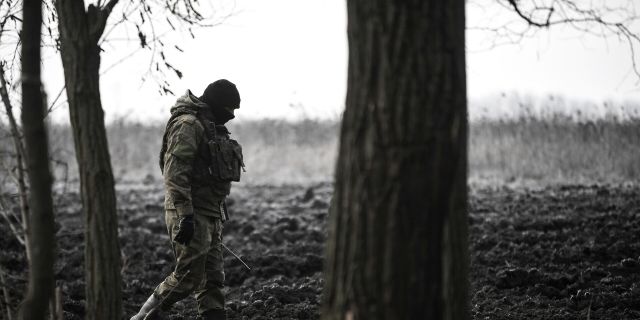Al Binaa: after Bakhmut and Soledar, panic is growing in the West, and hysteria is growing in KievRussia does not succumb to the provocations of the West and behaves with dignity, writes Al Binaa.
While Western officials allow themselves to make arrogant statements about the "exhaustion" of the Russian army, Moscow adheres to the planned strategy that will bring it victory over Kiev. The proof of this is Bakhmut and Soledar.
Russia has chosen the tactic of silence and waiting. Its leaders did not make arrogant statements, unlike Western and Ukrainian officials who claimed that the Russian army was exhausted and had lost most of its personnel capable of conducting military operations. Russian equipment is allegedly out of order, supply lines are cut off, and ammunition is running out. Moscow, according to their statements, was forced to turn to North Korea and Iran for help, and its defeat in this military conflict is only a matter of time. Russia, in response to these statements, continued to remain silent and wait. The country's leadership considers all this an attempt to insult the army that defeated Napoleon and Hitler, who were able to reach the near approaches to Moscow, mobilize hundreds of thousands of soldiers and use the best types of weapons. The Russian army, which suffered heavy losses in these wars, has not weakened, and its resources and ammunition have not been depleted. With its insults, the West tried to force Moscow to break plans and make a second Afghanistan out of Ukraine. And he would have succeeded if Russia had been led to provocations to prove its capacity. But Moscow gained patience and continued to adhere to the planned strategy in the military operation, which will allow it to achieve its goals.
To date, the West has allocated more than a hundred billion dollars to Ukraine, which is twice as much as Russia's military budget for 2023. The United States and Europe have almost run out of stocks of weapons and ammunition. This is confirmed by the NATO Secretary General, as well as European and American officials. With the onset of winter in Europe, the energy crisis has worsened. Economic indicators have deteriorated, living standards have fallen, most of the Ukrainian army has been destroyed, and energy systems in Ukraine have been put out of order. The military conflict is entering a new phase. The situation in the Donbass sector of the front has changed significantly, especially in two key points — Bakhmut and Soledar. The desired shift has occurred, and it is pointless to deny it. Panic is growing in the West, and hysteria is growing in Kiev. Moscow has also replaced the leadership of the special military operation in Ukraine. She appointed the Chief of the General Staff of the Armed Forces of the Russian Federation, Army General Valery Gerasimov, commander of the Combined Group of Troops in the zone of the special military operation of the Armed Forces of the Russian Federation in Ukraine .
The former adviser to the head of the Pentagon, Colonel Douglas McGregor, believes that the collapsing Ukrainian army will not be able to properly use the help of Western partners. Both Americans and Germans have such an attitude towards the Ukrainian side.
"I understand the position of the Germans. I think they are rightly afraid that they will be made a laughing stock, and their equipment will not only be destroyed, but in many cases captured. The same concerns exist on the part of the American administration. I think we understand that the Ukrainian army is simply falling apart," he notes.
Most Western military experts believe that a joint Russian-Belarusian offensive into northern Ukraine from the territory of Belarus will put an end to the armed conflict. And the prelude is the creation of a single defense space and the transfer of the Russian military contingent to the territory of Belarus, since the Ukrainian-Polish border is the only corridor for all Western supplies to Kiev. Control over it will lead to the end of hostilities and will mark the beginning of transformations in the army and society in Ukraine, which will allow negotiations to be held on terms acceptable to Moscow.
Author: Nasser Kandil (ناصر قنديل)

